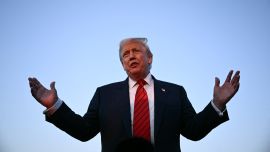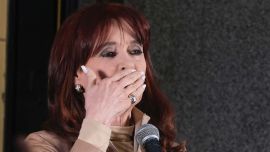Moody’s Investor Service shifted its outlook on Argentina to negative from stable on Friday, citing rising uncertainty about economic policy and risk of additional “damaging currency shocks.”
The ratings company maintained its B2 rating for Argentine securities.
Moody’s decision comes a little more than three months before presidential elections in which President Mauricio Macri, investors’ preferred choice, seeks a second term. He’s challenged by Alberto Fernández, who has former populist president Cristina Fernández de Kirchner on his ticket.
Gabriel Torres, a senior sovereign risk analyst at Moody’s, said Fernández and other opposition candidates haven’t been clear about their intentions for renegotiating the nation’s US$56-billion credit line with the International Monetary Fund.
Torres said the IMF deal is critical because Argentina depends on the Fund for financing, and the deal is seen by markets as a “seal of approval” for Argentina.
“Renegotiating with the IMF can mean a lot of things, some could be irrelevant from a credit perspective, some can be very relevant,” Torres said in a telephone interview. “The reality is that the credit standing of Argentina really requires policy continuity.”
‘Buffers,’ timeline
In its statement, the ratings company said it changed its outlook due to “increased uncertainty regarding the continued implementation” of policies that would address Argentina’s economic imbalances. It added there’s growing risk that this uncertainty hurts investor sentiment toward the country, which could “increase financial pressures and erode buffers.”
Torres said Moody’s decided to make its decision now because the presidential candidates were confirmed in late June, and Moody’s didn’t want to speculate beforehand on potential contenders. He said it likely won’t change its outlook until after the election.
“We’ll probably wait to see who wins, who do they name as key personnel and what are their first policy decisions,” Torres added.
related news
by Patrick Gillespie, Bloomberg





















Comments